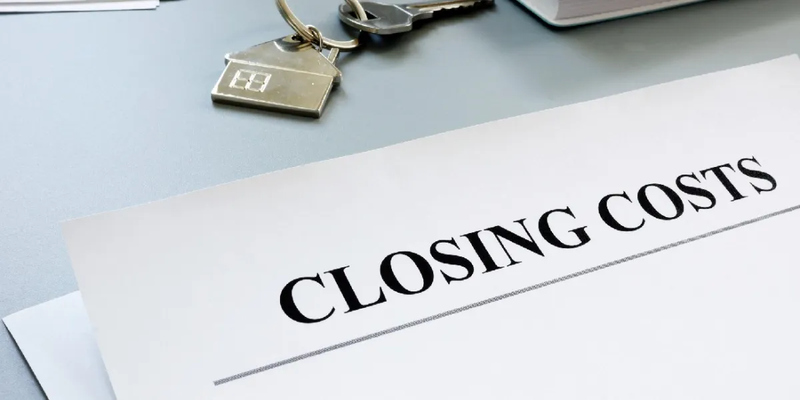Navigating the complexities of debt collection laws can be a daunting task, especially considering that these laws can vary significantly from one state to another. Whether you're dealing with personal debt or you're in the business of debt collection, understanding the legal landscape is crucial. This blog post aims to provide a concise guide on state-specific debt collection laws, highlighting the unique aspects of each state's regulations and how they complement federal guidelines.
Federal Debt Collection Laws: The Foundation

Before diving into the nuances of state laws, it's essential to understand the federal framework governing debt collection practices. The Fair Debt Collection Practices Act (FDCPA) sets the national standard, offering protections such as:
Restrictions on Communication: The Act specifies when and how collectors can contact debtors, prohibiting contact at inconvenient times or places. For instance, debt collectors are not allowed to contact debtors before 8 a.m. or after 9 p.m. unless agreed upon by the debtor. Moreover, collectors are forbidden from contacting debtors at their workplace if they are informed that such calls are not allowed by the employer.
Prohibition of Abusive Practices: The FDCPA outlaws abusive, unfair, or deceptive behavior. Debt collectors are not permitted to use threats of violence, obscene language, or publicize your debts to unauthorized parties. Additionally, the act prohibits the use of misleading or false representations regarding the debt, including the amount owed or the legal status of the collecting agency.
Cessation of Communication: Under the FDCPA, if a debtor sends a written request for all communication to cease, or states that they refuse to pay the debt, the debt collector must comply with this request. This does not mean the debt goes away, but it does restrict the collector from making contact, except to notify the debtor of specific actions being taken, like filing a lawsuit.
The State-Specific Landscape
Debt collection laws are not uniform, and each state has its own set of regulations that can affect both collectors and consumers in different ways. Some states have stricter rules on wage garnishment, while others may offer more generous exemptions to protect debtors' assets from being seized.
Northeast Region
New York: Known for its consumer-friendly stance, New York enforces strict regulations on debt collection practices. The state limits the hours during which collectors can contact debtors, prohibiting calls outside of reasonable times. Furthermore, debt collectors are required to provide detailed documentation of the debt upon the debtor's request. This documentation must include information such as the origin of the debt and the calculation of the amount owed, ensuring that debtors are fully informed and able to verify claims.
Pennsylvania: This state emphasizes transparency in debt collection. Pennsylvania mandates that debt collectors maintain precise records of all communications with debtors. This requirement helps to protect consumers by ensuring that there is a clear and traceable record of the collectors activities, which can be crucial in disputes or legal proceedings.
Midwest Region

Illinois: Illinois offers robust consumer protections, setting limitations on wage garnishment that go beyond federal standards. The states laws are designed to protect a debtor's income to a greater extent, ensuring that individuals have sufficient funds to cover basic living expenses despite ongoing debt recovery efforts.
Michigan: Michigans laws focus on preventing abuse in the debt collection process. The state places a strong emphasis on respecting the debtor's privacy, with restrictions that prevent invasive practices which could lead to harassment or undue stress for the debtor.
South Region
Texas: Texas stands out for requiring that debt collectors inform debtors about their rights from the first point of contact. This proactive approach ensures that debtors are aware of their rights under state and federal law, which can empower them to manage their financial situations more effectively and guard against potential abuses.
Florida: In Florida, there are specific exemptions for head of household wage earners, which protect a portion of wages from garnishment. This exemption is particularly significant in households where one person earns a majority of the income, safeguarding family finances from disruptive losses due to debt collection.
West Region
California: California has one of the strictest sets of debt collection laws in the country. The state requires that all debt collectors be licensed and follow stringent rules concerning the debt collection process. These regulations are intended to ensure ethical practices and to protect consumers from predatory behaviors.
Washington: Like California, Washington places a high emphasis on consumer protection, with laws designed to protect individuals from harassment and to ensure fair treatment throughout the collection process. The states approach helps to maintain the dignity and rights of consumers, reducing the stress and potential harm caused by debt collection.
Consumer Rights and Protections
It's vital for consumers to know their rights when interacting with debt collectors. In case of any violations, individuals should:
- Document all communications.
- File a complaint with their state attorney general's office.
- Consult with a legal professional to explore further actions.
Each state offers resources and agencies that can assist in these matters, often available through state government websites.
Frequently Asked Questions
To help demystify some common concerns, here are answers to frequently asked questions about debt collection:
What should I do if contacted by a debt collector?
Verify the debt's legitimacy, understand your rights, and respond appropriately.
How can I dispute a debt?
Send a written notice to the collector disputing the debt and requesting verification.
Staying Informed and Prepared
Knowledge is your best defense against unfair debt collection practices. By understanding both federal and state laws, you can better navigate the challenges of debt collection and protect your rights. Remember, laws are subject to change, so keeping informed through reliable resources is key to managing your financial health effectively.
Conclusion
Debt collection laws serve as a critical framework for protecting consumers and maintaining fair practices in the debt collection industry. By staying informed about these laws, consumers can significantly reduce their vulnerability to unfair practices and enhance their ability to manage debts responsibly. Whether you're in New York, California, or anywhere in between, understanding your local laws will equip you with the tools to protect yourself and your finances.
Stay proactive and consult professionals when necessary to ensure that your rights are always upheld in the complex world of debt collection.







